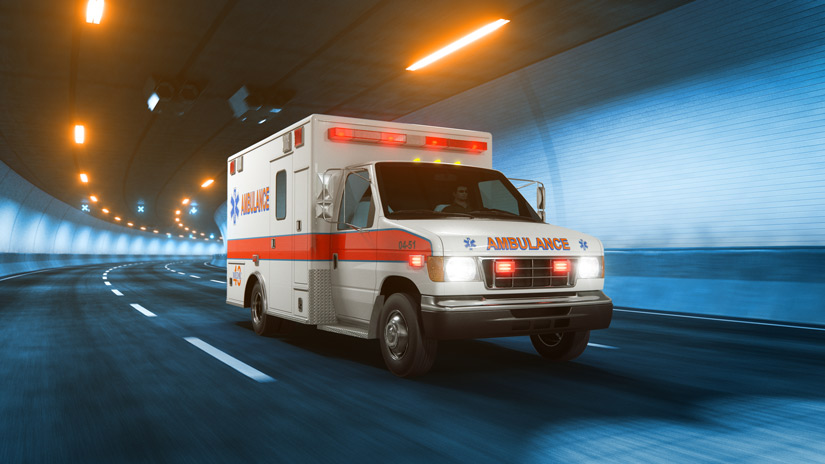We can’t overemphasize the potentially catastrophic danger of overdoses. Let us be perfectly clear from the beginning: overdoses require immediate medical intervention. Without that intervention, death is a very real possibility. Even if you survive the overdose, you may suffer severe organ damage or other significant health impacts.
Life and Death
An overdose is easily one of the most dangerous and dramatic outcomes that can result from the misuse of alcohol or drugs. A person’s body can be totally overwhelmed if too much of a substance is consumed. Unable to cope with the impact of the drug, the body may well shut down. Again, this can result in death.
Whether Accidental or Intentional, an Overdose Is an Emergency
Overdoses can occur in a variety of circumstances. For example, children are often tempted by medicine they mistake for candy. If they ingest it—even in small amounts—they may put themselves in danger of overdosing. Securing medications out of the reach of children (and also of those with mental impairments of various kinds) is crucially important.
Accidental overdoses among adults are frequently caused by confusion about medication schedules, appropriate dosages, or potential drug interactions. Regardless of the cause of the overdose, all of these incidents require the intervention of a doctor.
Intentional overdoses also have a range of causes. Some are the result of an individual trying to achieve a more intense high. Others are the result of suicide attempts. Regardless of the cause of the overdose, the essential thing to remember is that medical attention must be sought immediately. Dealing with the specific situation that led to the overdose—whether intentional or accidental—can be sorted out after the individual’s life has been saved.
Everyone Is Different, so Overdoses Can Be Unpredictable
Every person responds to drugs in a unique way. There is no simple formula that can reveal how much of a substance you can ingest before you will experience an overdose. As a result, the dangers of overdose are always present—whether someone is using a substance for the first time or has been misusing drugs or alcohol for an extended period.
Long-term users may build up a tolerance for their substance of choice. That tolerance means it takes more and more of the drug to achieve the same effects. As a person steadily (or unpredictably) increases their intake in pursuit of the desired high, the danger of overdose continues to increase. Predicting the exact tipping point is impossible, but it is easy to see how ever-increasing intake means ever-increasing risk.
But again, new drug users are at risk for overdoses as well. These new users have no idea how any given substance will affect them. If they take drugs for the first time at the encouragement of an experienced user with more tolerance, they could quickly find themselves experiencing a life-threatening emergency.
Those in recovery may be at particular risk of overdosing in the event of a relapse. After an extended period of sobriety, a person’s body may no longer be able to tolerate drugs—especially not at the levels they may have ingested prior to entering rehab. For this reason, relapse involves an elevated chance of overdose.
The Symptoms May Vary, so Vigilance Is Important for Preventing Overdoses
There is a wide variety of substances out in the world, and each one of those various substances interacts with bodies differently. That means the symptoms of overdose vary, too, depending on what a person has taken. Among the more common symptoms: difficulty staying awake or feelings of extreme lethargy, finding it challenging to see things clearly, experiencing much slower—or even stopped—breathing, and falling into unconsciousness.
Overdosing on a depressant may cause sedation so deep that the respiratory system shuts down completely. Overdosing on a stimulant may lead to a feeling of overwhelming stress and anxiety. No matter the symptoms, the reaction must be the same: seek medical attention right away.
There Is No Shortage of Drugs Associated With Overdoses
Both legal and illicit drugs can lead to overdoses. Among the many, many substances that can cause an overdose are:
- Pain relievers—including opioids—acquired via a doctor’s prescription
- Drugs—including acetaminophen—that are purchased over-the-counter (OTC)
- Antianxiety drugs and antidepressants
- Heroin, cocaine, methamphetamines, ecstasy, and other illicit drugs
- Drugs ingested in unpredictable and dangerous combinations
A Specific Example: Synthetic Opioids Pose Substantial Overdose Risks
Dr. Andrew Kolodny discussed the dangers of synthetic opioids with The New York Times: “We have roughly two groups of Americans that are getting addicted,” he explained. “We have an older group that is overdosing on pain medicine, and we have a younger group that is overdosing on black market opioids.”
Another Times article suggests that Narcan—a drug for counteracting the effects of an opioid overdose—is increasingly proving ineffective as a treatment for synthetic opioid overdoses. This kind of overdose accounted for more than 19,000 deaths in 2016. Meanwhile, heroin and prescription painkillers were also responsible for a significant number of deaths.
Sobriety is Simply the Best Way to Avoid an Overdose
At Bel Aire Recovery Center we have the expertise and tools necessary to help you or a loved one get—and stay—sober. For those struggling with a substance use disorder, getting help right away is the best way to ensure an overdose is avoided. But if an overdose does occur, we hope it will serve as the warning signal you need to convince you to pursue treatment. We’re ready to help you build the foundation for ongoing recovery and lasting sobriety once the immediate crisis of an overdose is past.




